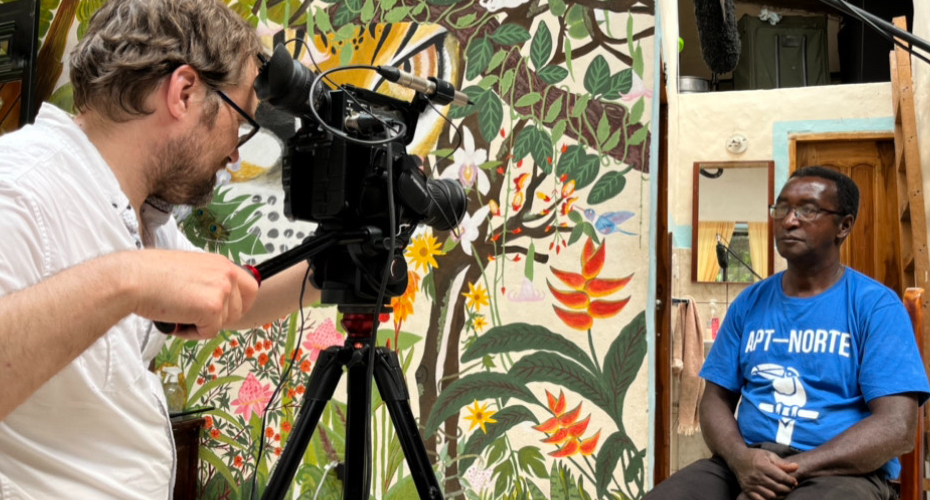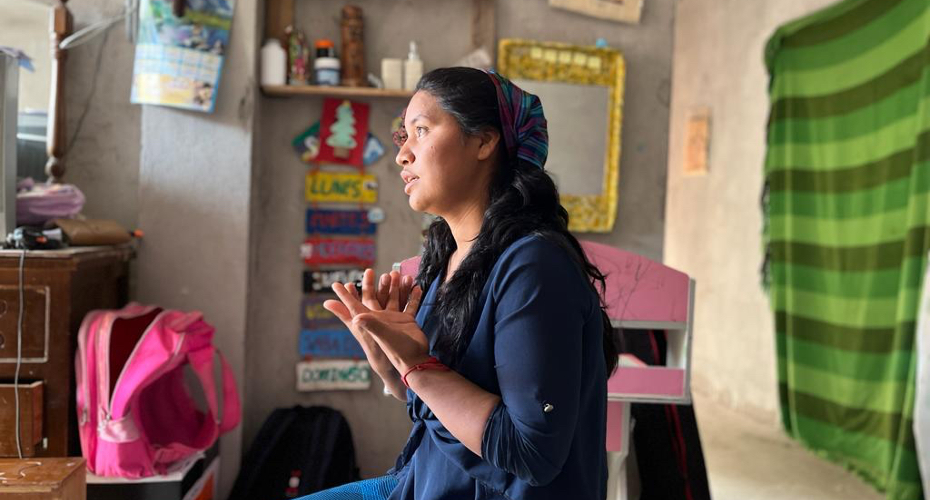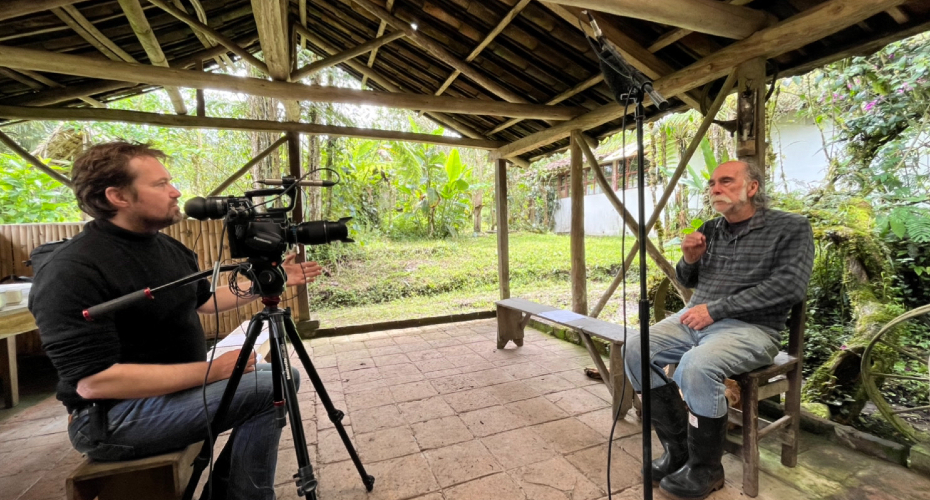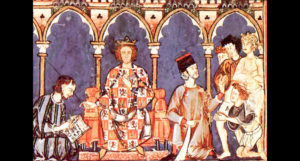Human rights documentary handed European premiere at United Nations Forum in Geneva

Dr Rogge interviewing Julio Espinoza
A powerful documentary film which focuses upon the little-known investor-state dispute settlement system and the hidden impact it can have upon bio-sensitive areas of the world has been given a European premiere by the United Nations.
The Tribunal, which has been directed by Dr Malcolm Rogge, a human rights expert at the University of Exeter, tells the story of how the exclusive ISDS system has brought conflict and misery to people living in a remote rural community in the Intag Valley of Ecuador, a world biodiversity hotspot.
ISDS is a unique instrument of public international law, which grants private parties, termed as ‘foreign investors’, the right to sue a sovereign nation in a forum other than that nation’s domestic courts. In making the film, Dr Rogge spent weeks interviewing residents and activists in Ecuador, who have been opposing multinational mining companies seeking to develop a large copper mine in the region.
This week, The Tribunal was granted a European premiere at the United Nations Forum on Business & Human Rights at the Palais des Nations in Geneva, Switzerland. The annual forum is the most important gathering of States, businesses and civil society organizations for the ongoing development and implementation of international human rights standards for businesses around the world. This follows on from the film’s world premiere at Columbia Law School in New York City, where it was introduced by the UN Secretary General’s Special Representative on Human Rights and the Environment, David Boyd.

“The Tribunal is about the inequities pervading the exclusive and opaque International ISDS system – a system that has increasingly come under scrutiny by policy makers and civil society,” says Dr Rogge, of Exeter’s Law School. “Critics of the system, including those interviewed in the film, argue that it is undermining the ability of governments to protect people and the environment and to take action on climate change. The Tribunal shows how people around the world are calling for reform or its replacement with a more transparent and just way of resolving investor-state disputes.”
To make the film, which was produced in partnership with the Columbia Center on Sustainable Investment in New York City, Dr Rogge drew on his many years of prior experience working with human rights and environmental defenders in Ecuador and other parts of Latin America. Working with an Ecuadorian sound recording artist, Andrés Galarza, he compiled many hours’ worth of interviews with community members in the Intag Valley, who revealed on camera how their home – one of the most ecologically diverse in Latin America – has been blighted by mining exploration activities. Some of Rogge’s interviews were conducted in remote locations, requiring equipment to be transported by mule along narrow pathways through the mountain cloud forest.
The documentary has received widespread acclaim and is already generating an impact on practitioners and policy makers who are driving efforts to reform the worldwide ISDS system. Renowned arbitrator Toby Landau KC endorsed The Tribunal in his “Alexander Lecture” at the Chartered Institute of Arbitrators in London. Landau called the film, “extraordinarily powerful, beautifully made, and very compelling,” noting that the film, “provides a rare insight into the ground realities of investment law treaty cases.” One of the world’s leading scholars on the international investment arbitration system, Gus Van Harten (author of The Trouble with Foreign Investor Protection, Oxford University Press), described the film as, “a powerful indictment of the arbitrations conducted under investment treaties over the last 25 years.” While the former legal advisor to the United Nations Secretary General’s Special Rapporteur on Business and Human Rights, Andrea Shemberg, noted that the film, “documents a perspective that literally never gets heard.”

The Tribunal follows on from Dr Rogge’s 2008 international award-winning feature documentary film, Under Rich Earth, which was filmed in the same region of Ecuador. Rogge has lived and worked there on and off since he was a law student in Toronto, and during that time, he has worked with Ecuadorian environmental and human rights organisations, including the Center for Economic and Social Rights and Acción Ecologica (Ecological Action).
Dr Rogge, who came to the University of Exeter from Harvard University in January 2021, convenes modules at the Law School in Business & Human Rights and Corporate Law, Corporate Governance, and Sustainability.
His legal scholarship has been published in leading journals and blogs on business law and human rights, including the Harvard Law School Forum on Corporate Governance, and the Fordham Journal of Corporate and Financial Law.
You can view the film at the Columbia Center for Sustainable Investment website.



